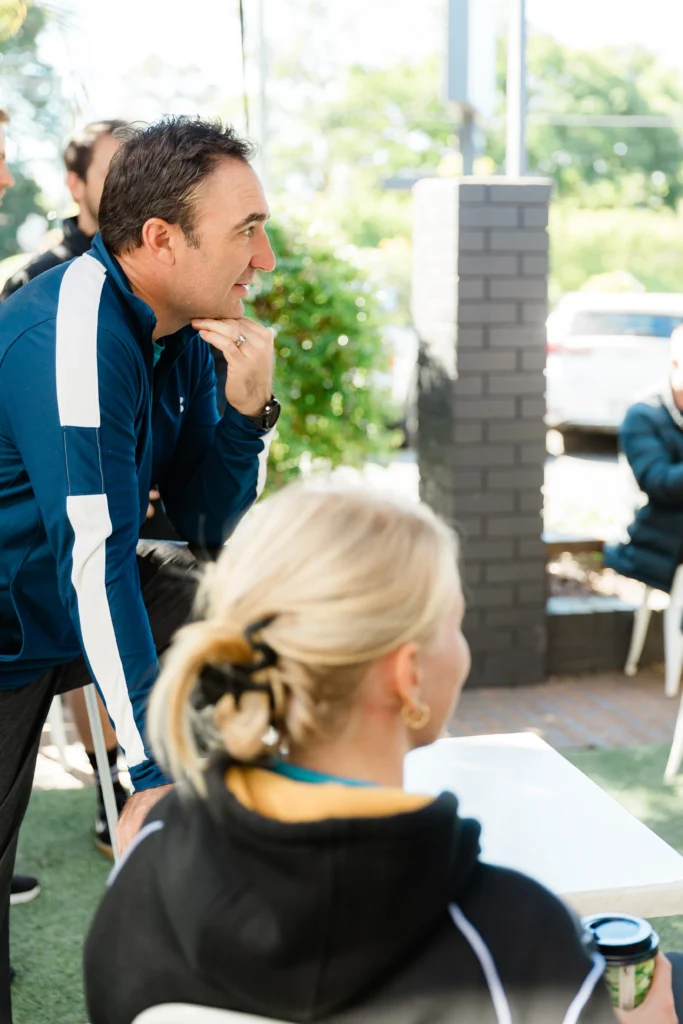Junior sports play a significant role in Australia, with thousands of children participating every Friday, Saturday, and Sunday mornings. From the fields in local parks to the grand stages of national championships, the spirit of junior sports thrives across the country. As a devoted supporter and family member of the Under 6 Clovelly Crocodiles, one of Australia’s cherished junior teams, I’ve had the privilege of witnessing firsthand the joys and challenges of coaching young athletes. When my son-in-law, a fresh-faced coach, sought advice on training techniques and game management, it dawned on me—the paramount importance of fostering a positive and enjoyable environment for these budding sports stars.

Making it FUN: The Foundation of Junior Coaching
At the heart of successful coaching lies the ability to make every session enjoyable for young athletes. These young ages are crucial for laying the foundation of a lifelong love for sports. Structured drills may have their place, but the real magic happens when coaching transcends into play. Incorporating games, challenges, and imaginative exercises not only keeps the children engaged but also cultivates essential skills in a natural and organic manner. Picture a group of six-year-olds laughing, running, and learning—all while honing their athletic abilities. That’s the essence of coaching junior teams: making every moment on the field an adventure filled with FUN.
To illustrate, let’s consider a typical training session for the Clovelly Crocodiles. Instead of starting with repetitive drills, my son-in-law, the coach, begins with a game of “Capture the Flag,” where players work on their agility and teamwork while having fun. As the session progresses, he will seamlessly integrate skill-building exercises into more games, ensuring that learning is always fun and engaging. By the end of the session, the kids are not only sweaty and tired but also filled with smiles and newfound skills – impressing the parents, which is also a bonus!
Navigating the Fine Line of Competition
The topic of competition in junior sports is a nuanced one, often sparking debates among coaches, parents, and league officials. On one hand, there’s a prevailing sentiment that keeping scores and standings may detract from the primary focus—skill development and enjoyment. However, as children mature, introducing elements of healthy competition can be beneficial. It’s not about fostering a win-at-all-costs mentality but rather instilling a sense of resilience, teamwork, and sportsmanship.
In today’s junior competitions, it’s becoming more common to see a shift away from emphasising who wins and who loses. This trend leaves me feeling a bit torn about the idea of not keeping score or having a formal competition table. Some studies in sports sociology suggest that tracking points and standings is really more for the benefit of parents than the kids themselves. But it does raise a question: when should competition become part of the picture?
Looking at the broader educational landscape, we see that children are evaluated and graded from a young age. For instance, standardised tests like NAPLAN kick in Year 3, when kids are typically 8 or 9 years old. This education environment fosters a culture of competition, where students, schools, and even regions vie for recognition. Interestingly, children also face assessments in artistic fields like music, dance, and drama. Given this backdrop, the absence of competitive structures in junior sports (a competition) seems a bit out of step.
It’s important to note that while winning has its place, it shouldn’t overshadow the bigger goals of developing sportsmanship and skill development. Rather than solely focusing on winning, it’s crucial to instil values like humility in winners and grace in defeat among young children. These values are fundamental life lessons that extend far beyond the sports field.
The Parental Factor: Nurturing a Supportive Environment
Parents play a pivotal role in shaping the junior sports experience, acting as both cheerleaders and mentors for their children. However, the sidelines can sometimes become a breeding ground for negativity, with instances of parental pressure and sideline abuse tarnishing the purity of the game. It’s essential for parents to remember that their words and actions have a profound impact on their children’s sporting journey.
In some sports across the United States, they’ve taken drastic steps like banning parents from attending games, cheering, or even making noise from the sidelines. Why? Well, it boils down to a sad truth: some parents just can’t keep it together. They end up hurling abuse not only at their own kids, but also at the opposing team, and, worst of all, the officials trying to keep the game fair.
I recently watched an interview with the head of NRL referee development, and he highlighted a major problem they’re facing: young referees are quitting left and right because of the abuse they face from the sidelines. He mentioned that recruiting new referees isn’t the issue—it’s keeping them around that’s the real challenge. It hit home for me because, truth be told, I’ve been there. Back when I was a rookie coach, I’ll admit I let my emotions get the best of me. It took some time, but eventually, I realised that refs, umpires, and linesmen are only human. They’re bound to make mistakes, just like the rest of us. Looking back on my time coaching a First XV GPS Rugby team for over a decade, I can see moments where I could’ve handled things better.

Teaching Beyond the Field: Values and Responsibility
Junior sports offer a unique platform for imparting values that extend far beyond the boundaries of the playing field. Coaches, alongside parents, have the invaluable opportunity to instil qualities such as discipline, respect, and teamwork in young athletes. Whether it’s arriving on time for practice, dressing in the correct attire, accepting the referee’s decisions with grace, or demonstrating sportsmanship in victory and defeat, these lessons become the building blocks of character.
The Role of Education in Sporting Excellence
At Fit Education, we recognise the pivotal role that education plays in shaping the future of sports coaching and development. Our Diploma of Sport curriculum covers a diverse range of topics, including leadership, psychology, ethics, and integrity. By investing in their education, coaches and aspiring professionals can deepen their understanding of the sports landscape, equipping themselves with the knowledge and skills needed to make a meaningful impact on the next generation of athletes.
In conclusion, coaching junior teams isn’t just about wins and losses; it’s about nurturing a love for the game and instilling values that last a lifetime. By prioritising fun, fostering a supportive environment, and embracing the educational aspect of coaching, we can ensure that every young athlete’s journey is fulfilling and enriching. So let’s lace up our boots, grab our whistles, and embark on this rewarding adventure of coaching junior teams to success and enjoyment. Together, we can inspire the next generation of sports stars and cultivate a culture of excellence, respect, and joy on and off the field.
